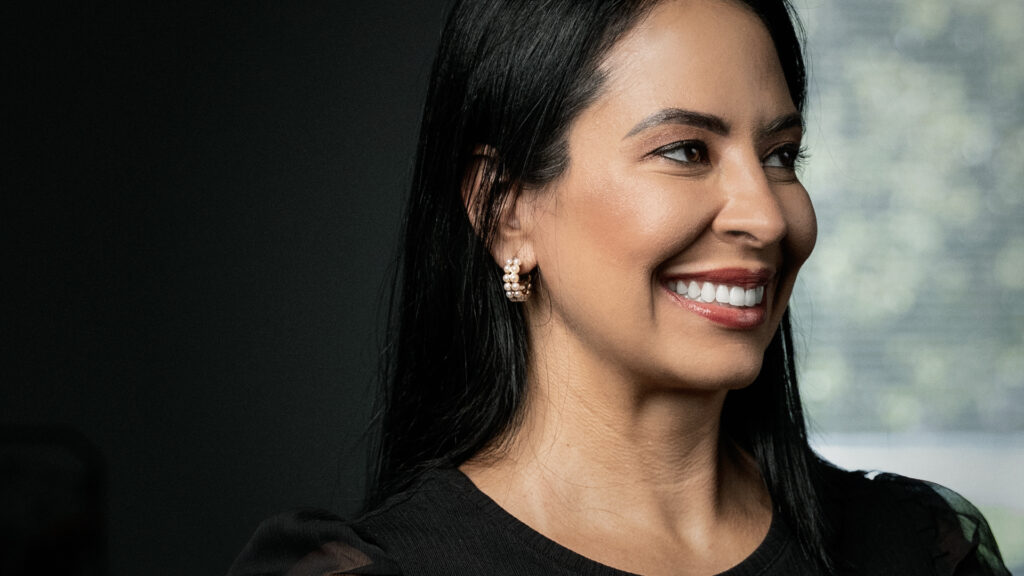Having a business (you can eventually sell) is a real path for wealth creation.
Let’s do a quick example.
It’s worth understanding this math, and in doing so understanding the value of a resale franchise.
If you invest in a business for 250k, get a loan (which requires you to typically put 30% down) that means 75k of your own cash is in the business.
If that business earns roughly 150k per year at the time of exit, that number is multiplied (usually by 4).
Meaning, in this scenario the business owner would have taken a 75k cash investment and turned it into a 600k asset.
That’s a 7x return. Your asset would have increased in value 700%, and does not include the money you earned throughout the life of the business.
How many people do you know who have gained significant wealth from selling their business?
We see this everyday. So our list is extensive.
BUT…
You have to run the business well in order to get to that 150k in annual income. That’s where franchising comes in.
A Resale Analogy
To put resales in perspective, let’s use a real estate analogy. Imagine building a house from scratch versus building with a builder versus buying a house from a previous owner.
Building an independent business is like constructing a house from scratch. You’re figuring out every detail—from the layout and where the rooms and vents go to dealing with contracts and government officials. It’s a lot of work and requires a lot of decisions.
When you work with a builder, they guide you through the decisions. They provide you with a well-structured home, but while they might not offer all the options you want, they give you a significant head start on making your house a home. Similarly, buying a franchise is like working with a builder. They provide a proven business model and support, but there’s still work to be done to tailor it to your needs.
On the other hand, buying a resale franchise is like purchasing a home that has already been lived in. The previous owner has done the building, maintenance, and improvements. They’ve figured out what doesn’t work and made necessary replacements. This home has the added benefit of owner equity, care, and a lived-in feel.
Just like a resale franchise, it comes with established operations, a customer base, and refined processes. This offers you a business that’s ready to thrive with less initial effort. Reflect on this analogy when considering your franchise options. It can help you understand the different paths and what might be the best fit for your goals.
Insights on Franchising from Inside the System
In early 2024, FBA attended the International Franchise Association’s (IFA) Annual Conference. There was a session on franchise resales.
The notes and insights we collected from leading franchisors were positioned to be used to help franchise systems improve their resale programs and ways to support their franchisees to have a good resale when they are ready to sell.
However, we thought this information would be useful for someone interested in becoming a franchise owner for you to know the challenges and struggles that franchises face, in addition to strategies they have for overcoming those challenges.
So this piece helps you to see what GOOD franchises do to help their franchisees and it’s a very real article that handles when people are done with the system, or are struggling, and gives them options for their exit in the most supportive way.
We hope this empowers you as a franchise buyer to not only assess getting into a franchise, but also understand how you could be supported in the franchise you work with.
Let’s Define a Resale Franchise
A resale franchise is an existing franchise business that is being sold by the current owner. Potential franchise buyers often approach resales from two perspectives: either they are looking to buy an established business or they want to understand the exit strategy options available should they decide to sell their franchise in the future. Starting with the end in mind is crucial when considering any franchise investment. We’ll touch more on that later.
Franchise resales offer the advantage of acquiring a business with an established customer base, proven cash flow, and operational systems already in place. This can significantly increase the predictability of the franchise’s ongoing success.
Why Do People Sell Their Franchises?
Resale franchises are huge opportunities for wealth as addressed in the example above. The point that you sell the business can be a rapid wealth acceleration moment in your financial story.
People sell their franchises for a variety of reasons, often tied to their personal or professional goals. Some franchise owners may wish to retire, pursue new business ventures, or relocate. Others might seek to capitalize on the business’s success by selling at a peak time. And sometimes they just don’t like it. They just want out.
The FBA handles resales, so we see businesses at the end of their life cycle. If their owners do well through the operation of the business, that resale process is much more fun. There are things that business owners can do to make that resale a party at the end and enjoy the benefits of it.
But, a lot of people aren’t even thinking about the resale while they are operating their business. They aren’t thinking about how to operate and position their business for the best end offer.
We want you to think about it, because there are simple things you can do that not only give you a better owner experience but also in running the business.
The Franchise Support
Franchising, in general, makes it easier to enter and exit a business due to the brand reputation, system, and support provided by the franchisor. This visibility allows both new and resale buyers to come into business ownership with a clear understanding of what the business will look like.
Franchisors play a crucial role in supporting both the entry and exit processes. In the session we attended, we heard countless franchisors discuss innovative ways to improve their franchise owners performance in this process. Here are some creative ways franchisors on the pencil incentivised ongoing performance of franchisees.
- Develop Programs that Incentivize Desired Behavior: The Franchisors created programs that reward franchisees for achieving certain performance metrics. Think of the gamification of your success.
- Performance Tracking: Franchisors often track franchisee performance using a mix of brand engagement metrics scores and operational performance scores.
- Grading Systems: Some franchisors use a grading scale (A, B, C, D, F) to evaluate franchisee performance. This system helps franchisees understand their standing and identify areas for improvement without comparing themselves to neighboring franchisees.
The Benefits of Performance Tracking in Franchising
Performance tracking and structured support are critical components that distinguish successful franchise systems. Understanding these benefits can help potential franchisees see the value of choosing a franchise that prioritizes these elements.
- Standout Feature: Good franchising systems track and support franchisee performance.
- Grading System: Like in school, a grading system allows franchisees to compare their performance to others and their past performance.
- Clear Path to Improvement: This system helps franchisees identify areas for improvement and achieve the results they initially sought.
- Incentive Programs: Franchisors set up programs that incentivize desired behaviors, such as giving “A” operators a larger share of rebates.
- Encourages Excellence: These programs encourage franchisees to strive for excellence and reward their efforts, improving individual and system-wide performance.
- Performance Metrics: Access to performance metrics helps franchisees get ahead of potential problems and make informed business decisions.
- Resale Goal: The goal of a resale franchise is not to escape a bad business, but to transition at the right time with the franchisor’s support, maximizing resale value.
- Structured Support: Franchisors provide structured support through regular performance evaluations and targeted improvement strategies.
- Eliminates Guesswork: This support gives franchisees clear guidance and the tools needed to succeed, reducing uncertainty.
- Achieve Business Goals: By partnering with a supportive franchisor, franchisees are better positioned to achieve their business goals and maximize their potential.
By choosing a franchise that prioritizes these elements, you set yourself up for long-term success and a rewarding business experience.
Begin with the End in Mind
When considering a franchise investment, it’s essential to start with the end in mind. Understanding your long-term goals and exit strategy is crucial for making informed decisions. Whether you plan to own the franchise for a few years or a lifetime, knowing how you intend to exit can shape your approach to managing and growing the business.
Starting with the end in mind involves several key considerations:
- Exit Strategy: Determine how you want to leave the business when the time comes. This could involve selling the franchise, passing it on to family members, or transitioning to a different role within the franchise system. Having a clear exit strategy helps you make decisions that align with your long-term objectives.
- Business Growth: Focus on building a strong, sustainable business that will be attractive to potential buyers when you decide to sell. This includes maintaining good financial health, fostering customer loyalty, and ensuring operational excellence.
- Resale Potential: Evaluate the resale potential of the franchise. Look for franchises with strong brand recognition, solid financial performance, and a proven track record of successful resales. These factors will make it easier to sell the franchise when you’re ready to exit. Additionally, consider the multiples for different industries. Brands with recurring revenue tend to sell for higher multiples. When selecting a brand, choose one that is easier to sell and commands a higher multiple. You can often examine existing resales within a brand to see how they are performing, which can provide valuable financial insights.
FBA offers franchise valuations, which is a key tool to measure the success and health and measure the value of the business each year. As you’re building your business, knowing what builds value can make it your business more valuable in the end.
Talk to an FBA representative to learn more about this support.
Ensuring a Good Fit for Both Franchisee and Franchisor
When you are assessing if a franchise is a good fit, the franchisor and system are also assessing if you are a good fit for them. This mutual evaluation process is crucial for both parties. Franchisors often ask the question, “Who do we want to partner with?” during their meetings with potential franchisees. This question is directly tied to the idea of beginning with the end in mind—both parties need to consider how they will work together not just in the initial phases, but throughout the business and in potential resale situations.
Knowing who you will be in business with—both the good and the bad—is essential to identify early on. Here’s why:
- Leadership Values: Assess if their values align with yours. Do they prioritize volume over quality or vice versa? Different values matter significantly and can influence the overall business approach and relationship.
- Handling Conflict: Consider how both you and the franchisor handle conflict. When things don’t go as planned, what kind of attitudes emerge? If there is mutual respect and a belief in each other’s good intentions, it bodes well for the partnership. However, if they become combative or avoid conflict, it can present challenges during operations.
- Organization and Professionalism: Professionalism is reflected in how organized and timely the franchisor is. Clear communication, knowing next steps, and punctuality are all indicators of professionalism. These traits instill confidence in both the candidate and the franchise system.
When considering how a franchise system and a potential franchisee will interact in a resale situation, it’s important to evaluate the long-term relationship. The franchisor needs to trust that the franchisee will maintain the brand’s standards and values, which will, in turn, make the business more appealing to future buyers. This forward-thinking approach ensures that the franchise system remains strong and cohesive, even as individual ownership changes.
For potential franchisees, understanding this process is beneficial. It allows them to see that the franchisor is committed to their success and is invested in building a strong, supportive relationship. This mutual vetting process ensures that both the franchisee and the franchisor are entering into a partnership that has the best chance of long-term success.
By being thorough in this assessment, both parties can move forward with confidence, knowing that they have found a good fit. This mutual understanding and commitment set the stage for a successful and productive franchise relationship, ultimately supporting the long-term goals and exit strategies of both parties.
Good Rule of Thumb for Evaluating Franchise Fit
As a potential franchise buyer, it’s important to understand the criteria that many franchisors use to evaluate their franchisees and the standards they uphold to ensure the success of the entire franchise system. Here are some key points that franchisors typically consider and why they matter:
- Debt Management: A good rule of thumb is that franchisees should not have debt exceeding 3.5 times their EBITDA (Earnings Before Interest, Taxes, Depreciation, and Amortization). This helps ensure that the business remains financially stable and can manage its obligations without undue stress.
- Performance Review: Franchisors often have finance, development, and operations teams review franchisee performance. Franchisees making 5% or below in EBITDA may be placed on a closure mitigation list and receive targeted support to improve their profitability. This proactive approach helps struggling franchisees get back on track.
- Succession Planning: It’s crucial to include succession planning in your business strategy, ideally even in your will. This ensures that there is a clear plan for the future of the business, whether you decide to sell, retire, or pass the business on to a family member.
- Brand Engagement: Franchisors measure brand engagement by monitoring participation in webinars, attendance at conferences, and involvement in field visits. If a franchisee stops engaging, it’s a signal for the franchisor to re-engage and offer support. This helps maintain a strong, cohesive franchise network.
- Pruning for Success: Sometimes, it’s necessary for franchisors to recognize when a franchisee is no longer a good fit for the system. This could be due to cultural misalignment or failure to meet performance standards. In such cases, offering an exit option is a compassionate approach that protects the investment of other franchisees and maintains the integrity of the brand.
Understanding these evaluation criteria is crucial for potential franchisees because it highlights the franchisor’s commitment to supporting and improving their network. It also underscores the importance of maintaining high standards and being prepared to meet them.
Why It’s Important to Know Your Options
Knowing what franchisors look for and the support they offer can help you make informed decisions when selecting a franchise. This knowledge is essential because it allows you to make well-informed decisions about whether you are prepared to meet the franchisor’s standards.
Additionally, understanding the differences between franchise systems enables you to choose one that aligns with your goals, values, and business style.
Furthermore, being informed about the support available from franchisors allows you to leverage these resources effectively, thereby enhancing your chances of success. This includes financial guidance, performance improvement programs, and engagement initiatives. A franchise broker can be an invaluable resource in this process, helping you navigate the complexities of selecting a franchise and ensuring that you find a system that meets your needs and aligns with your long-term goals.
Brokers have the expertise and connections to guide you towards franchises with strong support structures and clear performance expectations. By partnering with an FBA franchise broker and doing thorough research, you can enter the franchise world with confidence, knowing that you have the tools and knowledge to succeed and make informed decisions about your future in franchising.
Ready to explore franchise reselling opportunities and take the next big step? Click here to discover available Franchise Resales or Click here to discover available franchises and connect with us today!



























